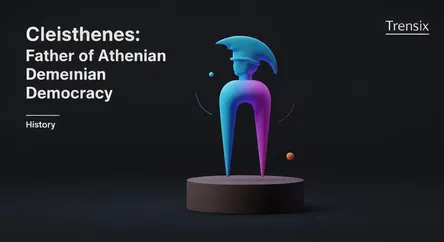History
Cleisthenes: Father of Athenian Democracy

Discover Cleisthenes, the ancient Athenian statesman credited with reforming the constitution and establishing democracy in Athens around 508 BC.
What is it?
Cleisthenes was an ancient Athenian statesman from the noble Alcmaeonid family, widely regarded as the "father of Athenian democracy." Active in the late 6th century BC, he introduced a series of revolutionary political reforms around 508 BC that fundamentally restructured Athenian society. His changes sought to break the power of traditional aristocratic clans that had long dominated politics. By reorganizing the citizen body and creating new governmental institutions, he laid the groundwork for a more inclusive system where ordinary citizens had a greater voice in governance.
Why is it trending?
The legacy of Cleisthenes remains a cornerstone of political history and is frequently studied in discussions about the origins of democratic governance. His reforms are analyzed to understand the transition from aristocracy and tyranny to a government "of the people." Concepts he championed, such as political equality and civic participation, are perpetually relevant in modern political discourse. As societies worldwide continue to grapple with issues of representation and civic engagement, Cleisthenes' innovative solutions to the political strife of his time offer enduring lessons and a foundational reference point.
How does it affect people?
Cleisthenes' reforms dramatically empowered the common citizens of Athens. He replaced the four traditional tribes, which were based on kinship, with ten new tribes organized by residential location (demes). This broke down old loyalties and diminished the power of aristocratic families. He also established the Council of 500, with members chosen by lot from the ten tribes, to set the public agenda. This gave more citizens direct experience in governing. Furthermore, he is credited with introducing ostracism, a process where citizens could vote to exile a politician for ten years, serving as a safeguard against tyranny. These changes created a more unified Athenian identity and a government more connected to its people.